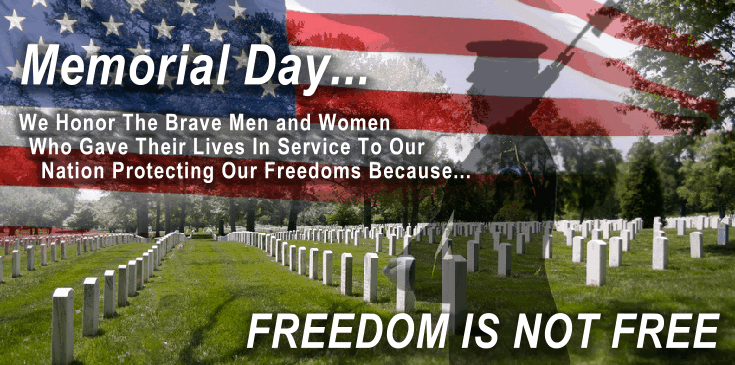When Ordinary People Set Themselves to Do Extraordinary ThingsIn anticipation of Memorial Day...By Ed Delph May 18, 2020 This week let’s take a moment to bring our attention off our present situations and pause to honor those who honored us with the ultimate sacrifice. I’m referring to Memorial Day here in the United States. Think for a moment. They served, fought, died, and went through unimaginable hardships to give a future to those they would never know. Like the title of this article says, they were, or still are, ordinary people just like us who became extraordinary people who set themselves to do extraordinary things for the generations yet to come. This week let’s take a moment to bring our attention off our present situations and pause to honor those who honored us with the ultimate sacrifice. I’m referring to Memorial Day here in the United States. Think for a moment. They served, fought, died, and went through unimaginable hardships to give a future to those they would never know. Like the title of this article says, they were, or still are, ordinary people just like us who became extraordinary people who set themselves to do extraordinary things for the generations yet to come. Author and friend, Craig D. Lounsbrough, gives us his thoughts about Memorial Day. Why is Memorial Day, Memorial Day? It causes us to remember how we got here and to not take our liberty for granted. It’s a high-impact moment to say thank you to those who paid the price for our freedom. Just think of it. Freedom isn't free. Someone paid the price for the freedom we enjoy. Couldn't we at least say 'thank you'? When three drunken high-school students crashed their car into a tree, the wreck sat in front of their school for several days. Each day the students looked at it. That's called a high-impact teachable moment. Memorial Day was designed to be a high-impact teachable moment reminding us of the price someone paid for us that we will never know. Memorials are significant in the life of any nation, organization, or individual. When Israel crossed the Jordan river after God miraculously parted the waters, God instructed Joshua to build a monument of twelve stones on the other side of the river. It was to be a memorial. What God was saying was, "When your children ask what the twelve stones are all about, use the monument for a teaching moment about my love and faithfulness." God parted the waters as a high-impact teachable reminder, more for future generations than the current generation. When you are teachable, you are reachable. Memorials are crucial. If you forget where you came from, you will forget where you are going. Today, Memorial Day has devolved into a holiday. It frees us from the doldrums of winter and launches us into the warmth of summer. It’s like the starter’s gun going off that starts the race of summer. To many, Memorial Day represents swimming time, barbecue time, and party time. That’s not all bad. It should be a celebration, a new season, but it also should not take us away from the purpose of Memorial Day. Allow me to quote Craig Lounsbrough again on his take on Memorial Day. The past is a guidepost, not a hitching post. It’s OK to revisit our past. If we abandon our past, we have no foundation upon which to build our futures or our identities. Revisiting is not about reinventing or rewriting our history as historical revisionists are so prone to do. Memorial Days are for reflection, a reflection that makes us better. Memorial Day is a reminder that the only reason you might be seeing more than those before you is you're sitting on top of their shoulders. Memorial Day, both personally and nationally, allows us to reflect on where we have come from both our failures and successes. It shows us where we should go and not go. It reveals positive and negative teachable moments in our history we need to learn from. It allows us to be authentic. We celebrate our victories, learn from our failures, acknowledge our strengths, and try not to replicate our weaknesses. Allow Memorial Day to draw you back to something you should not forget, something that made you what you are. That way those we remember on Memorial Day will not have died in vain.
| ||||
Ed Delph is a leader in church-community connections. Visit Ed Delph's website at www.nationstrategy.com
|
